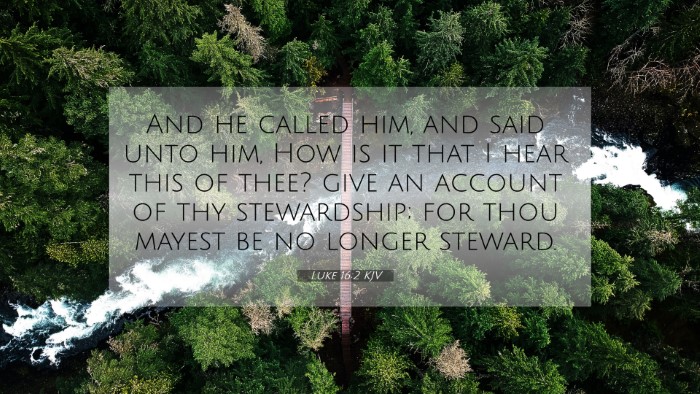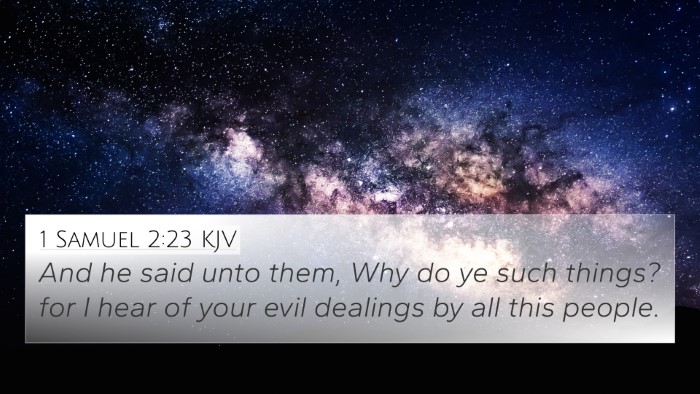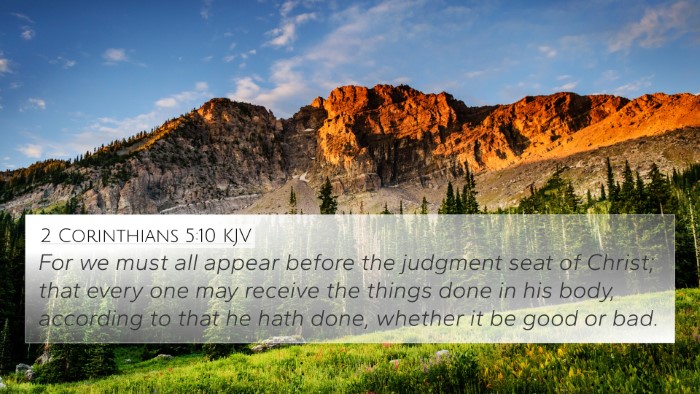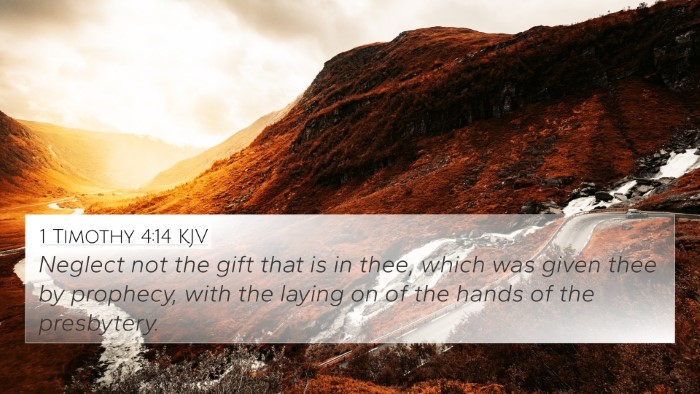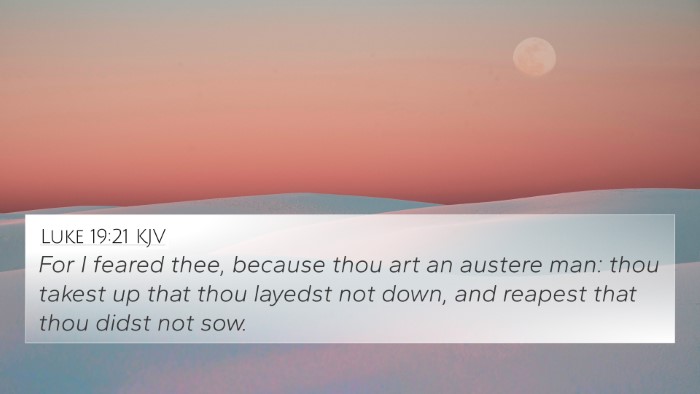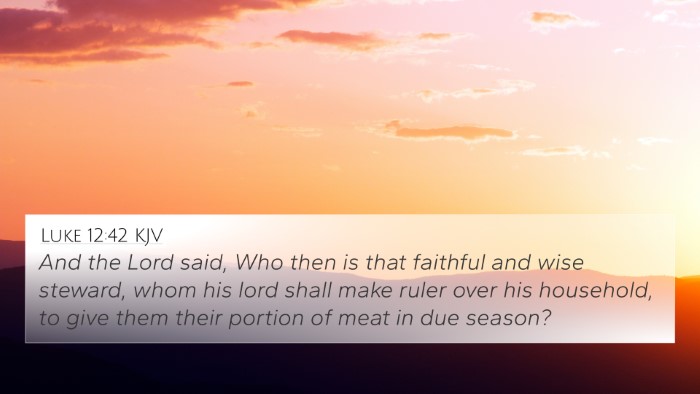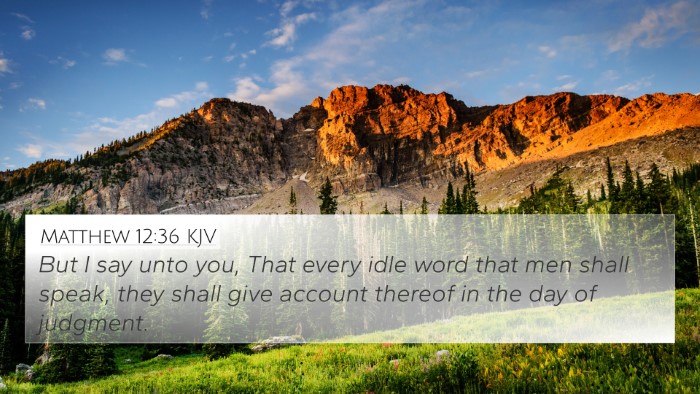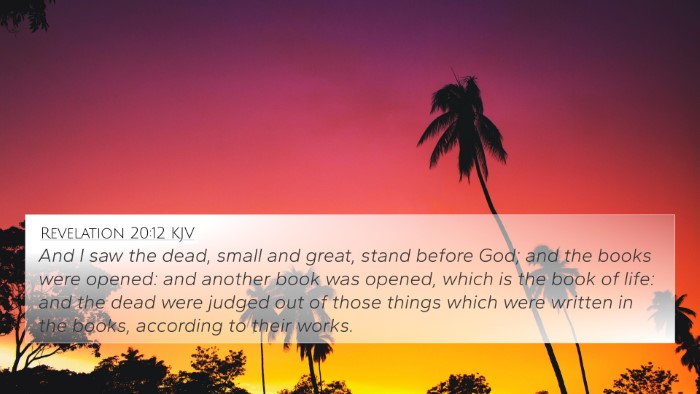Bible Verse Meaning: Luke 16:2
Luke 16:2 states, "And he called him, and said unto him, How is it that I hear this of thee? give an account of thy stewardship; for thou mayest be no longer steward." This passage discusses accountability and stewardship, emphasizing the importance of how one manages resources and responsibilities entrusted to them.
Insights from Public Domain Commentaries
Matthew Henry's Commentary
According to Matthew Henry, this verse reflects the concept of divine accountability. The steward represents those who are entrusted with resources by God. The call to give an account suggests that all believers must eventually answer for how they have managed these resources. This straightforward demand for accountability serves as a reminder that life is temporary and that proper use of one's earthly stewardship is essential.
Albert Barnes' Notes
Albert Barnes emphasizes that the steward’s situation symbolizes many in positions of responsibility who may neglect their duties. Barnes notes that this call for a reckoning indicates a time of judgment, aligning with the biblical principle that each person must render an account of their actions before God. This further underlines the idea that wealth and resources are not inherently evil, but their mismanagement can lead to serious consequences.
Adam Clarke's Commentary
Adam Clarke highlights that the steward's impending dismissal is due to his negligence and mismanagement. He suggests that this sense of urgency in accounting calls for introspection among believers. Clarke also relates this passage to the broader themes of prudence and preparation in one’s spiritual life, reminding readers that life’s judgments will reveal the truth of one's character and actions.
Related Bible Verses
- Matthew 25:14-30 - The Parable of the Talents, where servants are held accountable for the gifts they were given.
- 1 Corinthians 4:2 - "Moreover it is required in stewards, that a man be found faithful," highlighting the need for faithfulness in stewardship.
- Luke 12:42-48 - Discussing the faithful and wise steward who is rewarded, contrasting with the unfaithful one.
- Romans 14:12 - "So then every one of us shall give account of himself to God," reinforcing personal accountability before God.
- James 4:17 - "Therefore to him that knoweth to do good, and doeth it not, to him it is sin," relating knowledge and action in stewardship.
- Proverbs 27:23-27 - Advising diligent care over one's flocks and herds, symbolizing one's responsibilities.
- 2 Corinthians 5:10 - "For we must all appear before the judgment seat of Christ," again stressing accountability.
Thematic Connections
This verse is rich with themes of stewardship, accountability, and preparation for judgment. It connects strongly to numerous other biblical themes regarding how believers relate to their resources and responsibilities.
Understanding Stewardship
Stewardship in the biblical sense is not merely about financial resources, but encompasses all aspects of life including time, gifts, and relationships. Recognizing these resources as entrusted by God, believers are called to manage them wisely, reflecting God’s character in their actions.
Accountability Before God
The accountability emphasized in Luke 16:2 serves as a warning to believers to be vigilant and diligent in their responsibilities. The fear of being dismissed from stewardship should drive one towards faithfulness in all that has been entrusted to them.
Cross-Referencing Biblical Texts
Using tools for Bible cross-referencing can enhance understanding of this verse. By identifying connections and themes across both the Old and New Testaments, readers can obtain a fuller picture of God’s expectations regarding stewardship. For instance, comparisons with the Parable of the Talents in Matthew 25 deepen the insights into how stewardship is rewarded or punished based on actions.
How to Utilize This Insight
For those delving into the Bible, utilizing a comprehensive Bible concordance or cross-reference guide can reveal links between Luke 16:2 and other relevant scriptures. This practice facilitates a detailed and comparative study of biblical texts, enriching one's understanding of spiritual principles.
Conclusion
Luke 16:2 serves as a powerful reminder of the necessity for accountability in our stewardship. Understanding this verse through the lens of related scriptures enhances our awareness of our responsibilities and the implications of our management of resources given by God.


